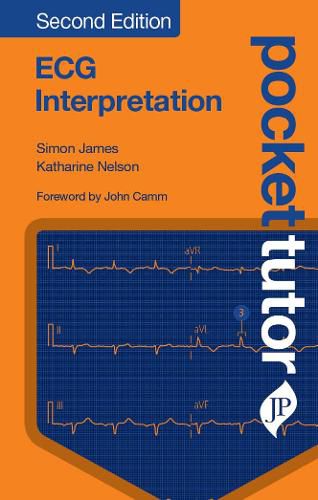Readings Newsletter
Become a Readings Member to make your shopping experience even easier.
Sign in or sign up for free!
You’re not far away from qualifying for FREE standard shipping within Australia
You’ve qualified for FREE standard shipping within Australia
The cart is loading…






Titles in the Pocket Tutor series give practical guidance on subjects that medical students and foundation doctors need help with ‘on the go’, at a highly-affordable price that puts them within reach of those rotating through modular courses or working on attachment.
Topics reflect information needs stemming from today’s integrated undergraduate and foundation courses:
Common presentations Investigation options (e.g. ECG, imaging) Clinical and patient-orientated skills (e.g. examinations, history-taking)
The highly-structured, bite-size content helps novices combat the ‘fear factor’ associated with day-to-day clinical training, and provides a detailed resource that students and junior doctors can carry in their pocket.
Key points
New edition of the best-selling title that breaks down a complex and daunting subject using clearly-labelled, full-page ECG traces and concise but informative text Revised text and brand-new ECG traces bring the new edition fully up-to-date New chapters cover electrolyte and homeostatic disorders, and normal variants Logical, sequential content: relevant basic science, then a guide to understanding a normal ECG and the building blocks of an abnormal ECG, before describing clinical disorders
$9.00 standard shipping within Australia
FREE standard shipping within Australia for orders over $100.00
Express & International shipping calculated at checkout
Titles in the Pocket Tutor series give practical guidance on subjects that medical students and foundation doctors need help with ‘on the go’, at a highly-affordable price that puts them within reach of those rotating through modular courses or working on attachment.
Topics reflect information needs stemming from today’s integrated undergraduate and foundation courses:
Common presentations Investigation options (e.g. ECG, imaging) Clinical and patient-orientated skills (e.g. examinations, history-taking)
The highly-structured, bite-size content helps novices combat the ‘fear factor’ associated with day-to-day clinical training, and provides a detailed resource that students and junior doctors can carry in their pocket.
Key points
New edition of the best-selling title that breaks down a complex and daunting subject using clearly-labelled, full-page ECG traces and concise but informative text Revised text and brand-new ECG traces bring the new edition fully up-to-date New chapters cover electrolyte and homeostatic disorders, and normal variants Logical, sequential content: relevant basic science, then a guide to understanding a normal ECG and the building blocks of an abnormal ECG, before describing clinical disorders